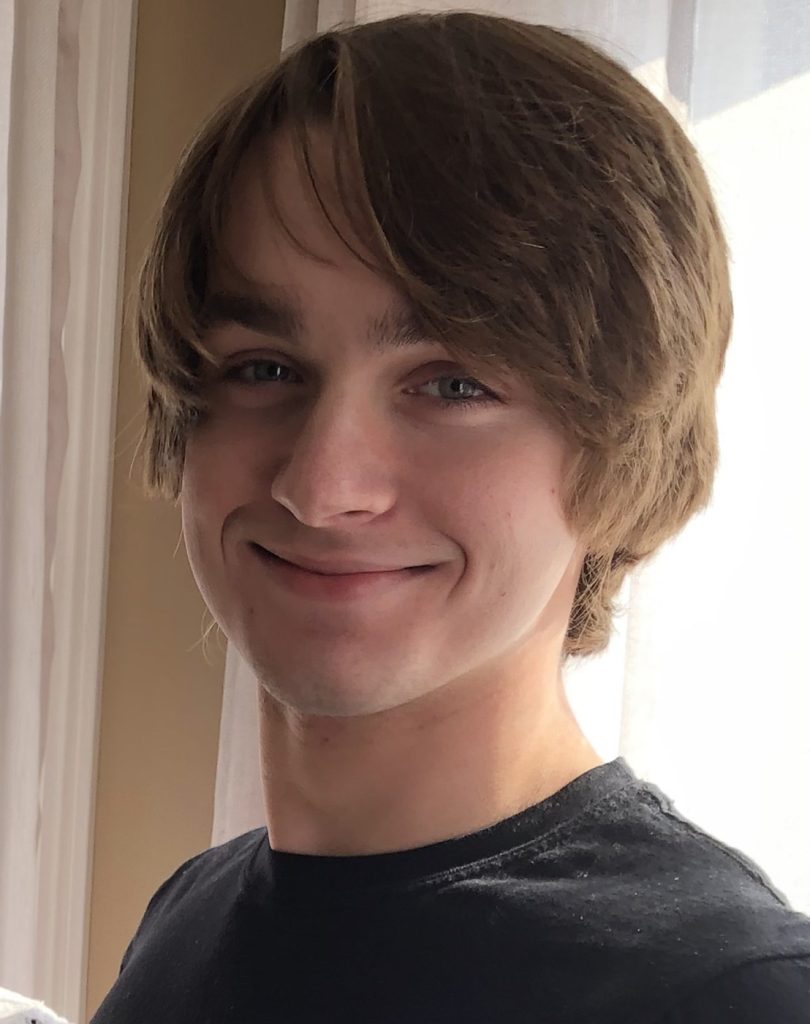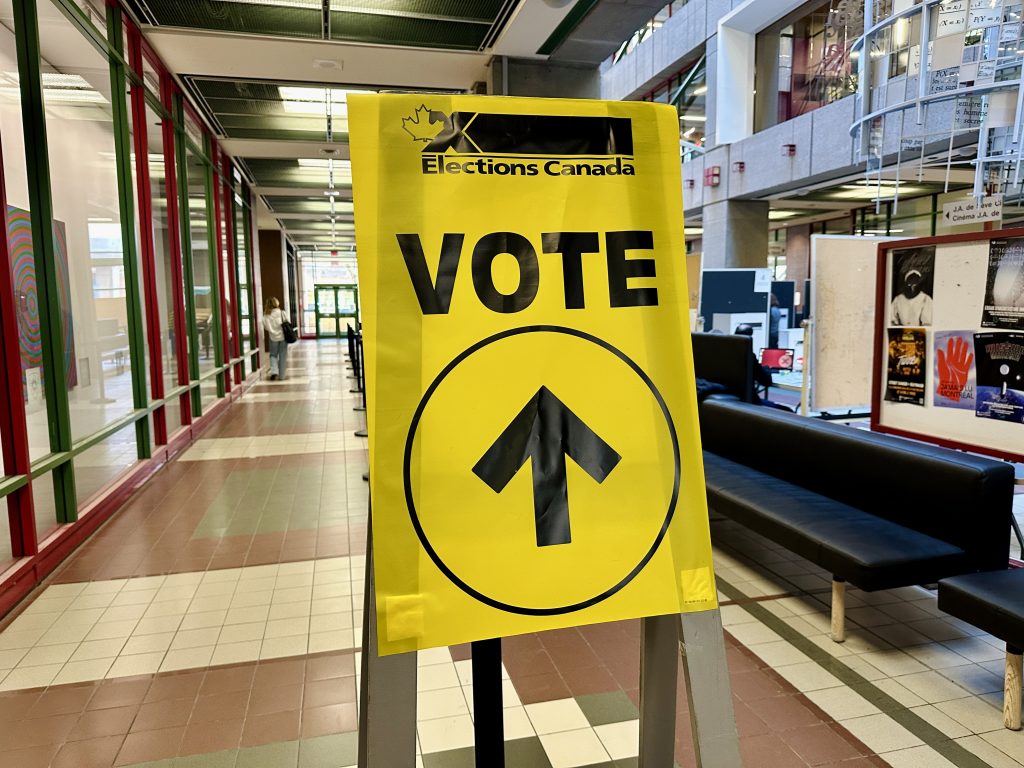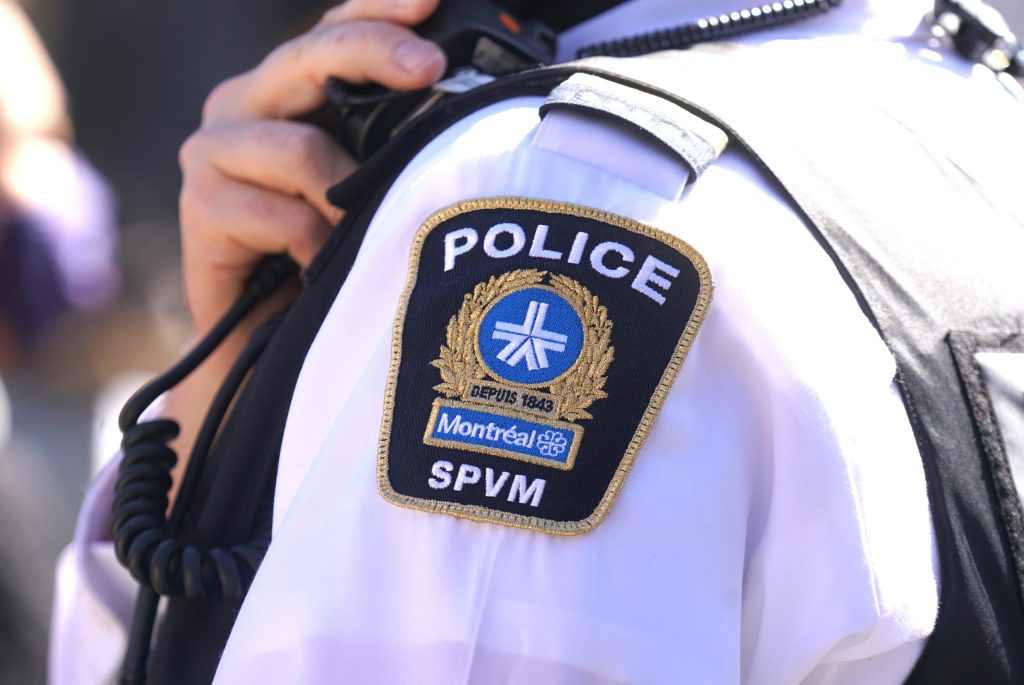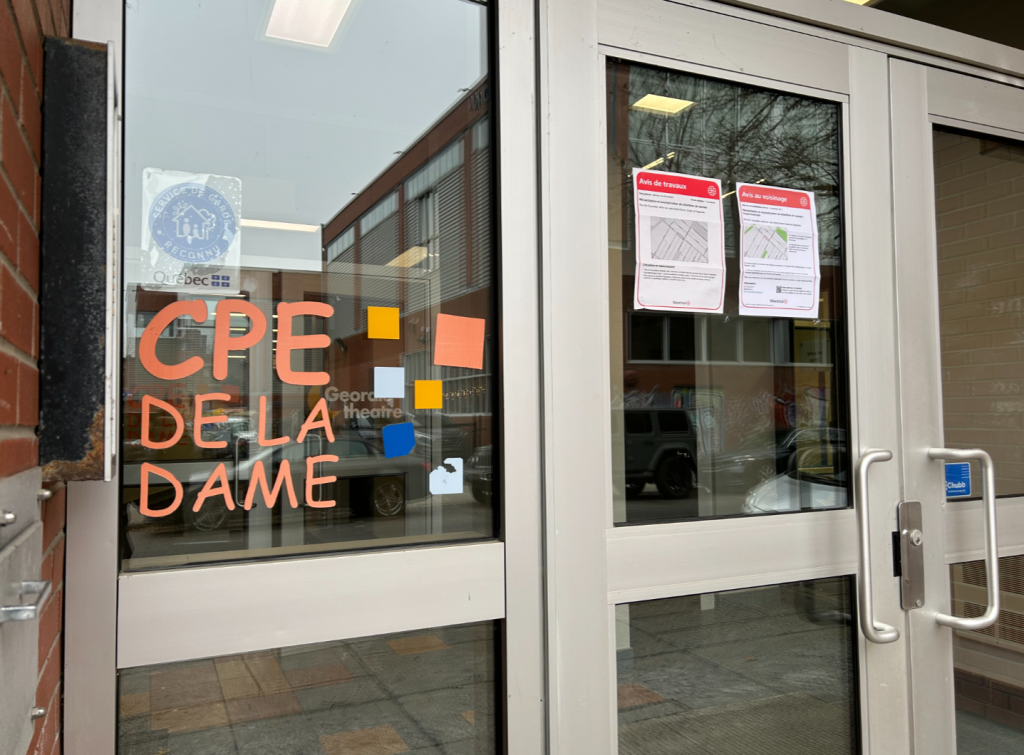Poilievre blasts Montreal mayor’s approach to addictions, homelessness; wants to close some supervised drug sites

Posted July 12, 2024 1:02 pm.
Last Updated July 12, 2024 2:24 pm.
Federal Conservative Leader Pierre Poilievre is attacking the Montreal mayor’s approach to severe drug addiction and homelessness, accusing her of telling Montrealers to “just learn to live with chaos and danger.”
Poilievre spoke this morning near a housing project that includes a supervised drug-use site in St-Henri that has drawn criticism because of its location near an elementary school.
He called for Maison Benoît Labre to be immediately shut down and promised to close other such sites located near schools or playgrounds if he becomes Prime Minister.
The federal Opposition leader also criticized Mayor Valérie Plante’s goal of improving what she calls “cohabitation” between residents and organizations offering services to vulnerable people.
Poilievre says kids should not have to cohabit with hard drug use and crime.
Plante announced earlier this week that the city will hold public consultations on how to better integrate such services into neighbourhoods amid rising public concern. She did not immediately respond to Poilievre’s comments.
Maison Benoît Labre said it did not want to enter a political debate, but said its services are essential to the fight against homelessness and the overdose crisis.
Supervised consumption sites are just “drug dens” that a future Conservative government would not fund and seek to close, Pierre Poilievre said Friday.
“Radical bureaucrats don’t have the right to open these drugs dens anywhere they want,” he said.
The first supervised injection site opened in Vancouver more than 20 years ago.
The sites are intended to prevent overdoses by allowing people to bring their drugs to use under the observation of trained staff. They also provide access to clean supplies to reduce rates of HIV and other diseases, as well as offer referrals to users seeking treatment options.
Health Canada says more than 40,000 people have died from toxic drug deaths since 2016, when the agency began tracking these figures. In 2023, British Columbia, Alberta and Ontario led the country in terms of the number of deaths. Most who died were men.
A 2011 Supreme Court ruling said that closing the Vancouver operation would deprive users of their Charter rights.
Poilievre said Friday that landmark decision does not mean supervised drug sites can operate anywhere without any restrictions.
He said he believes “reasonable restrictions” can be put in place to prevent them from opening “in locations that endanger the community, or where there is community opposition.”
In an exchange with a reporter, Poilievre repeatedly referred to the sites as “drug dens.”
“Wacko politicians and the Liberals and the NDP and their supporters in the media want to make it sounds like there’s a constitutional obligation that we allow these drug dens anywhere they want to go up. That is not true,” he said.
He suggested the federal government has the power to close existing sites under the Controlled Drugs and Substances Act, under which it grants them an exemption to operate.
Poilievre’s office did not divulge specifics when asked how he would go about shuttering sites.
However, he did sit as a member of the Conservative government of Stephen Harper, which passed the Respect for Communities Act in the years following the Supreme Court’s decision.
The controversial law required prospective supervised consumption sites to meet a suite of 26 criteria in order to open, such as tracking crime rates and providing medical evidence, along with handing in letters from provincial health ministers, local police and other stakeholders.
That law was panned by opposition parties and health groups for essentially blocking sites from opening. They said it bogged down the application process with paperwork and created unnecessary barriers.
But the Conservatives argued the law was needed to strike a balance between public health and public safety. Rona Ambrose, the health minister at the time, said their intention was to allow police and parents to have their say before supervised consumption could happen in their neighbourhoods.
After they were elected in 2015, the Liberals passed their own law allowing facilities to open with more ease, citing the need to better respond to the overdose crisis.
There are now 39 supervised consumption sites, according to Health Canada, and another 10 open applications.
Jane Philpott, the former Liberal health minister who ushered in the current government’s amendments to the law, is rejecting Poilievre’s assertions.
“These are not ‘drug dens,’ they are health centres,” Philpott, now the dean of health sciences at Queen’s University, posted on X.
“They save lives. In fact the staff have attended to about 50,000 overdoses (and) medical emergencies since 2017, with no reported fatalities on-site,” she wrote, adding thousands are alive because of access to such facilities.
Gord Johns, the NDP’s critic in Parliament on the issue, suggests shutting them down would only lead to people using drugs elsewhere.
“We know that if there is not a safe consumption site, the people that are using in this health emergency are using the bathrooms of local businesses,” he said.
“It becomes an absolute disaster in the bathrooms of small businesses, in our parks, in our schoolyards, in the back alleys, in the backyards of people’s in the community.”
This report by The Canadian Press was first published July 12, 2024.








